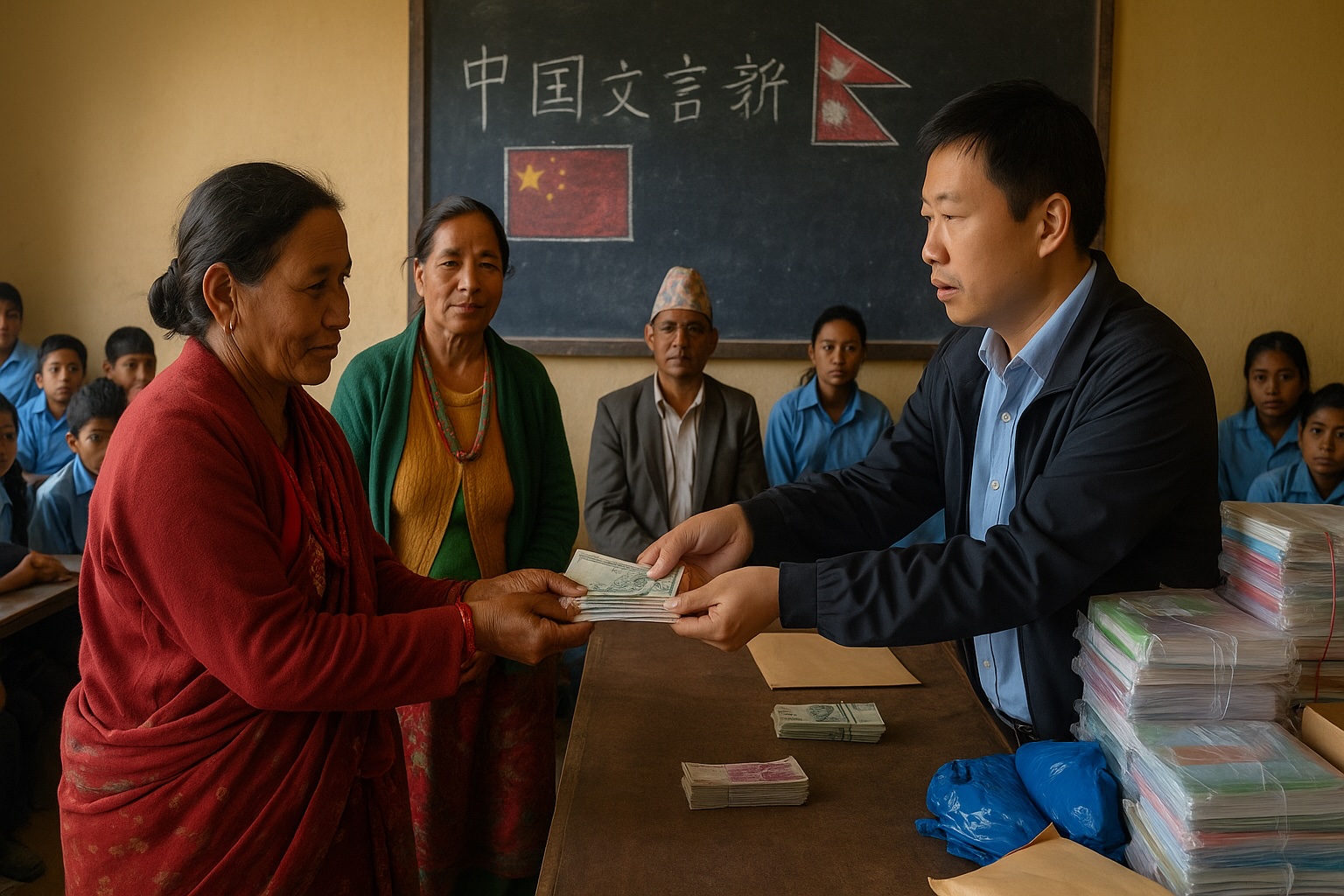Chinese Company Distributes Funds Across Nepal Without Government Approval, Raising Sovereignty Concerns

Kathmandu — A Chinese private company, Haishan Media, has come under scrutiny for distributing cash subsidies and material support across Nepal without clear evidence of government approval. Working in partnership with ISVG Nepal, the company claims to be running 10 Chinese language teaching centers nationwide, reaching over 1,050 students. It further claims to have distributed approximately Rs 1.4 million in cash subsidies to 13,349 recipients and provided additional cash and material donations worth Rs 2 million aimed at improving classroom conditions, supporting teachers, and enhancing students’ lives.
The company has also announced plans to establish nine more Chinese language academies, including one confirmed in Nuwakot district. These planned institutions are reportedly being built in remote and under-resourced regions of Nepal, raising questions about strategic intent and soft power projection by China under the guise of educational aid.
Under Nepal’s laws on foreign aid and investment, any foreign organization or company—whether private or state-backed—is required to seek formal approval from the relevant ministries before engaging in financial transactions, donations, or educational partnerships in the country. The absence of any official statement or documentation confirming such approval in this case has alarmed analysts and civil society observers.
The concern is not just over transparency and legal procedures. The initiative is seen as part of a broader effort by China to increase cultural and political influence in Nepal through non-traditional means. By offering free language instruction, distributing funds at scale, and embedding itself in local education systems, Haishan Media may be helping facilitate a deeper ideological and infrastructural presence.
There are also questions regarding the lack of regulatory oversight by Nepal’s government institutions. Ministries such as the Ministry of Education, Ministry of Foreign Affairs, and Ministry of Home Affairs have not issued any public statements clarifying their role—or lack thereof—in authorizing these programs. This silence has only heightened suspicion about the government’s capacity or willingness to enforce regulatory compliance when dealing with foreign entities, particularly those from China.
The growing presence of Chinese-funded programs in rural Nepal is not a new phenomenon, but this case stands out due to the scale and nature of direct cash distribution by a foreign private company. Without any official mechanism to monitor or audit such activities, there is a growing risk that Nepal’s laws and sovereignty may be undermined in practice, even if not formally violated.
Observers warn that if this trend continues unchecked, Nepal could become increasingly vulnerable to informal spheres of influence that operate outside the framework of national policy. What appears on the surface to be educational assistance may, in fact, serve as a strategic tool for long-term political and cultural penetration.
At a time when Nepal is grappling with the need to maintain balanced relations with its neighbors, such developments point to a failure of institutional vigilance. Unless the government steps in to clarify the legal standing of these foreign-funded initiatives and sets strict boundaries for how such programs operate within the country, the erosion of sovereignty could gradually become normalized.




![From Kathmandu to the World: How Excel Students Are Winning Big [Admission Open]](https://www.nepalaaja.com/img/70194/medium/excel-college-info-eng-nep-2342.jpg)
